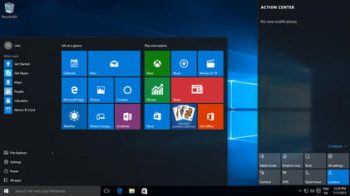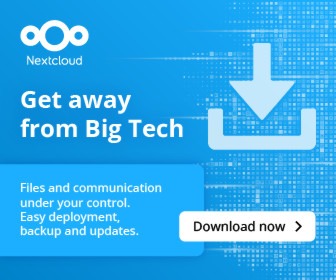Microsoft announced on Thursday that the end-of-life is coming soon to its free upgrade-to-Windows 10 scheme. Afterwards, the operating system won’t be cheap.
Just because Steve Ballmer is no longer at the helm in Redmond doesn’t mean Microsoft doesn’t go completely bonkers on occasion. On Thursday, the company announced in a blog that free upgrades to Windows 10 are coming to an end.

According to the blog, the free upgrades to Windows 10 will end on July 29, and users of Windows 7 and up are urged to hurry, hurry, hurry to get their free upgrade while they can. “After July 29th, you’ll be able to continue to get Windows 10 on a new device,” Yusuf Mehdi, Microsoft’s vice president of Windows and devices wrote, “or purchase a full version of Windows 10 Home for $119.”
If that seems like a lot to pay in an age when consumer operating systems have become a commodity — and at a time when Redmond is facing intense competition in the laptop market from Chrome OS — there’s more. Anybody using a Pro version who upgrades to Windows 10 Pro will have to shell out $199, the current retail price.
This seems to fly in the face of reason. Windows is already the only consumer operating system that comes with a price tag. Linux based operating systems, of course, have always been free, and Apple quit charging for OS X back in 2013 with the release of version 10.9.
Since its release last July, the Microsoft PR people have been working overtime to convince the world that Windows 10 adoption has been fantastic. In Thursday’s blog, Mehdi bragged that Windows 10 has “become one of the largest online services in less than a year,” before going on to quote some of the metrics that Microsoft now collects on its users — like the amount of time spent on its browser, the number of questions answered by its personal digital assistant and the collective amount of time its users have spent playing games.
Much of the mainstream tech press is allowing itself to be spoon fed Redmond’s PR. On Friday, for example, eWeek published a slide show titled 10 Reasons Why Windows 10 Adoption Has Been So Rapid.
The truth doesn’t appear to be so rosy. On May 2, to cite just one example, The Register published a look at the latest numbers from StatCounter, Netmarketshare and the US government’s analytics service, all of which look at operating system use on the Internet. According to these three services, Windows 10 accounted for somewhere between 14.35 percent (Netmarketshare) and 21.82 percent (Analytics.gov) of web traffic.
Interestingly, The Register’s article points out that Netmarketshare shows a five percent increase in “other” operating systems, “which means everything beyond MacOS and Windows.”
At this point, it’s probably not a certainty that Microsoft’s announcement shows it’s entire hand. It shouldn’t be a surprise if the company announced somewhere around the zero hour that customers who don’t want to shell out $119 plus for the operating system can opt for a lower priced subscription service. Time will tell.
Christine Hall has been a journalist since 1971. In 2001, she began writing a weekly consumer computer column and started covering Linux and FOSS in 2002 after making the switch to GNU/Linux. Follow her on Twitter: @BrideOfLinux









They gotta keep up the charade of the $199 regular price so the “heavily discounted” price of $20 they’ll probably want to charge the OEMs, and the $40 “educational version” they’ll be trying to flog in college stores, etc, will still look like a good deal.
Meanwhile, one of the first things that I found out after I got off slaveryware including MS was that I suddenly had a lot more money to spend on hardware. =:^) If those hardware folks would realize how many people have to split their computer pie between hardware and software, they’d be promoting freedomware a lot more, simply because that way they get say 80-90% of the pie (I did spend a bit more on books, there’s conferences people can go to, and people may spend a bit less overall), instead of the near 50/50 split I used to do.
That would go a /long/ way toward killing the computer slump a lot of these hardware folks are seeing, for sure!
My daughter is going to start her new job with a non-profit next week. I told her, that once she gets in the door and if she starts to hear about the high cost of their MS software(but not sure how much MS discounts software for non-profits if at all) I told her to have them talk with me. If that does happen, I will put them on much better and MUCH less expensive software like Cinnamon Mint and LibreOffice and get out from under the heavy handed MS policies.
A little off topic, but amusing anyway…
http://www.zdnet.com/article/how-was-this-windows-store-app-able-to-download-adware-to-a-windows-10-pc/?tag=nl.e539&s_cid=e539&ttag=e539&ftag=TRE17cfd61
“How was this Windows Store app able to download adware to a Windows 10 PC?
Apps from the Windows Store run in a highly restricted sandbox and have to be approved before they can be listed. So why was this app able to automatically download an executable file that multiple virus scanners identified as potentially dangerous?”
Ha! I wouldn’t adopt Windows 10 if they paid me $199!
So, is Linux ready for it?
Or, is let’s say Ubuntu, trying to make it more then needed or is it…
Same old story?
I love a good MS bash as much as anyone, but there’s no surprise involved. MS has always been really careful to note that Win10 was free until July 2016, not forever. Bad idea? Sure. Surprise? Not so much.
@Forge True. That’s not the surprise. As the article clearly states:
“While this is a totally expected move — Microsoft always said the free upgrades were for a limited time — it’s not going to happen the way many had anticipated, or in a way that would make sense in today’s market.”
This is not unexpected as many have stated. I really don’t pay much attention to MS anymore…ever since finding Linux and Fedora?….I don’t need MS anymore. I still feel sorry for my family and friends who /refuse/ to let Windows go….maybe with this move by Microsoft I can finally convince them to make the switch?…I guess we’ll see.
Not surprised, especially since they said they would only give out win 10 as a free upgrade for the first year of its release when they first talked about releasing WIN 10 a year ago.
I get it, you hate MS as much as Bernie hates Hillary, but these stories don’t promote FOSS as much as it shows your own bias, and that’s not journalism. I think most people here want a polished OS, with support, for free, and want everything to work out of the box.
@Bob Jones
> “I think most people here want a polished OS, with support, for free, and want everything to work out of the box.”
1) Polished
2) With support
3) Free
4) Everything works out of the box
Haha, good one. I suppose that mythical OS is the one used by the Tooth Fairy?
With FOSS Linux based operating systems, you get 3 automatically, while 1 and 4 vary about as much as it does on Windows, but you have greater choice. Number 2 is funny, because with Linux you have community resources and a vast array of public knowledge to draw on, while with Windows you have paid support (and it’s bad, on a cosmic scale bad as of the last few years) or you have community resources containing other people flailing around in the dark since Microsoft won’t tell anyone how anything works.
You have provided a convincing argument as to why everyone should drop Windows and use Linux. Thanks!
The above arguments don’t even begin to touch on the amount of freedom you gain from Linux over Windows too.
Windows is no better than malware these days.
I agree. Linux is good . I’ve used it as my exclusive OS on and off for 16 years, but I don’t think that MS is the root of all corporate evil, nor that Windows users are retards.
@Bob Jones
“but I don’t think that MS is the root of all corporate evil, nor that Windows users are retards.”
I don’t think anyone implied otherwise. A large percentage of Linux users were once Windows users after all.
MS may not be the root of all corporate evil, but they are certainly a large branch. 🙂
I would rather see more stories about the FOSS world than what’s going on in Microsoft land though. Honestly there are just so many more interesting things happening with FOSS than with anything proprietary.
In MS land it’s the same old, same old: Microsoft makes arbitrary changes stapled on top of old arbitrary changes so they can claim a “new and improved” product to sell. Meanwhile ever greater amounts of user privacy and security are being traded for what Microsoft sees as cash opportunities from advertising. Hooray. :p
After having had the freedom of Linux for a number of years, I’d never go back to Windows/Mac for any reason. I’d like to get schools to stop pushing Microsoft/Apple crap on students too.
…oh, that includes stopping schools from pushing Google crap too.
It’s kind of nice to see the MS stranglehold on schools being broken, but Chrome is really no better.